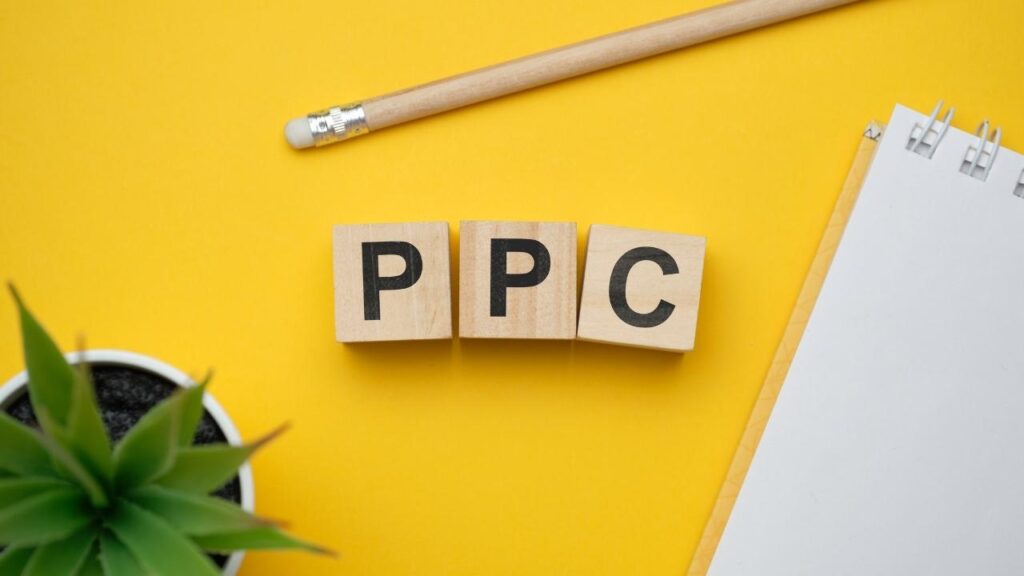
PPC is one of the most significant avenues for growth in the digital space. One 2018 Clutch study revealed that 45% of small businesses invest in PPC advertising. When done right, the rewards from PPC can take a business to new heights.
However, navigating and creating an efficient PPC campaign can become an expensive and tricky endeavor. PPC consists of several parts, and everything needs to go according to plan to ensure success. So it’s easy to make mistakes.
We at Beyond Exposure specialize in providing top-notch growth solutions for brands. One of our specialties is PPC management. Due to our experience, we’ve encountered plenty of campaigns with common mistakes across most of them.
So we decided to address them. In the following, we will discuss the 9 most common PPC mistakes. So let’s take a look into it!
What Are The 9 Most Common PPC Mistakes?
There are hundreds of ways to make mistakes on a PPC campaign. However, from our experience, we found that there are some common mistakes that people make. So in the following, you will find the nine most common mistakes people make on their PPC campaigns!
Not Knowing The Target Audience
People online look for personalized content. PPC is a very personalized form of advertising. If you don’t know your audience, your ads will underperform as people won’t engage with them.
Audience segmentation and defining your target audience for your PPC campaign is the first step and one of the essential parts of your PPC campaign. Know who they are, what they are looking for, and any other information necessary for you to know who they are.
We’ve found that people often make this mistake. They end up creating campaigns with vague target audience segments. Ensure your audience segments are as specific as possible to ensure your ads are personalized.
Running Multiple Campaigns Without Proper Testing
Another common PPC mistake we found was people running multiple ads without testing. PPC campaigns are fantastic for driving up your sales and traffic numbers. However, by properly testing the campaigns, you will know whether you are targeting the right person or your message is on point.
Our goal should always be to refine your targeting, keywords, and bid through thorough split testing. I will ensure that the PPC campaign is perfectly optimized for your audience.
Not Bidding On The Brand Name
Brand protection starts with PPC. If you look at any industry leader online, you will see that their products come up top on ads when you search for them. That’s because they are bidding on their brand name.
If big-name companies like Apple, Coca-Cola, and Gucci are doing it, you should, too, because if you don’t, your competitors will. Unfortunately, it is a common tactic amongst PPC users as it’s easy to steal invaluable traffic and leads through this technique. So make sure you avoid this mistake and start bidding on your brand’s name to protect your customer base.
Lacking Message Continuation
PPC is not just ads. It is a process that continues till lead generation and sales. However, we often find that campaigns have engaging advertisements that fail to deliver what the user wants after clicking on the ad.
Lack of message continuity is a common mistake that hurts a brand severely. It incites confusion, site abandonment, and even bad PR for a brand. So make sure your PPC campaigns fully integrate with the customer’s journey.
Be sure to consider everything from the design experience to content that makes it easier for the users to learn about your service and take it up quickly.
Not Diversifying Campaigns Across Multiple Devices
It’s not 2005, and internet access isn’t only limited to a desktop. Everyone is connected to the internet through various devices. People often start one thing on one device and then execute it on another.
It’s not only limited to young children either. One Econsultancy report states that around 40% of adults use multiple devices. So, avoid hyper-focusing on just one device for your PPC ads. Instead, ensure you advertise on smartphones, tablets, and desktops to get maximum ROI from your campaigns.
Having Unoptimized Landing Pages

A classic PPC mistake is neglecting landing pages. This problem has existed since the inception of PPC. People often put too much effort into creating ads.
Instead, they need to put more effort into ensuring the quality and relevance of landing page content and the load speed of the pages across multiple devices. Remember, the bounce rate will skyrocket if your page needs more information or takes too much time to load.
So don’t make that mistake. Instead, always ensure that you have unique landing pages for each ad, and make sure it’s filled with content that resonates with the user enough to engage with it.
Not Closing Out The ROI Loop
While metrics like impressions, clicks, and conversions are valuable, there are other metrics to measure the efficiency of a PPC campaign. Unfortunately, one common mistake we often see brands make is that they entirely forgo the importance of closing the ROI loop.
Instead, it would be best if you focused on the revenue the campaign generates to get an idea of its effectiveness. Then, it can inform you where to strategically invest your money rather than just pouring it into PPC ads without much return.
Running Unpotimized Ads
You are running PPC ads to generate revenue and leads that will convert into future revenue. However, if your ads aren’t generating revenue, your campaign is failing.
Therefore, your priority should be to optimize the ads so that the click-through rates or CTR goes up. Remember, optimizing ads for revenue is the best way to move forward.
With PPC, you can have a campaign with underperforming ad impressions, clicks, CTR, the average cost per click (CPC), and quality score and still generate high revenue with the proper optimization. Revenue keeps the brand alive, not vanity metrics, so make sure you focus on the right metric.
Complicating Ad Messages In The Name Of Creativity
PPC ads can often become confusing as ads or landing page content can become confusing and too complicated for the users to invest in.
In addition, ad copies and landing page content are often different, so you will start hemorrhaging traffic and revenue. Ad copies and landing page content should be similar, and both should be clear and concise about what the brand offers.
How To Avoid PPC Failure?
PPC on paper can seem very easy to do. You can just set it up and forget about it because you’ve already set your budget limit. However, that’s where most campaigns need to be corrected.
Your PPC campaigns can generate sales, but they can also bleed money. And if you bleed money long enough, you will lose your business.
That’s why a designated PPC team is the best way to operate. They will be responsible for monitoring, assessing, and improving the campaign as it plays out in real time. Forgetting about the campaign is a no-go. Constantly improving your PPC campaigns is the only way to avoid PPC failure.
The Takeaway
So there you go, those are the nine most common PPC mistakes we’ve encountered. But, as you can see, you can easily avoid it with some oversight and simple management.
We recommend working with a professional team who will be able to provide you with the necessary expertise and management skills to get the best out of the campaigns.
If you want to work with a team who can help you with your campaigns and ensure you avoid common PPC ad mistakes, then we can help.
Our years of experience helped us hone our craft and create a unique approach to PPC that gets the most ROI for brands. So get in touch, and we can talk about how we can help you.
Also, if we missed something or have any questions about PPC, feel free to drop them in the comments below or hit us up on our socials, and we will answer them all for you.
And with that being said, that’s about all we have for you today. We will come back with something new for you soon. Until then, see ya!
